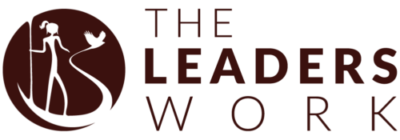I’m nervous about an upcoming interview with a business owner to introduce my leadership program based on Inquiry for professional development. I’m not feeling valued. Inquiry being my go-to process when I feel unbalanced in any way, I inquire into “I’m not valued”. Is it true?
Going into my past, I remember an incident while being an intern at an equine veterinary practice in 1998. Out on a call with the doctor, I can’t answer his questions. He clearly doesn’t see me as valuable.
The 4 Questions and Turnarounds of Inquiry are outlined in BOLD below.

“He doesn’t see me as valuable.“
Is it true?
Yes, it feels like it.
Can I absolutely know this is true?
No. I can’t know what he thinks.
How do I react, what happens, when I believe this thought?
I’m feeling ashamed. He’s asking me for a diagnosis, probing my knowledge of equine medicine. I justify my lack of knowledge by blaming my command of the English language and my university. I really don’t know, and he obviously expects me to know. The shame is making my chest tight, I can hardly breathe. I don’t look at him, my face feels like it’s burning. Even to myself, I cover up by talking, explaining. I hope that if I just talk fast enough, neither he nor I will notice my discomfort and lack of knowledge. I feel like an imposter, but I need to keep a brave face.
In the days that follow I keep looking for signs that he believes my stories, and I only see that he doesn’t value me, has no interest in me. I’m clearly not good enough. I try to be charming. Doing my best to be valuable, I try to ask intelligent questions. I keep pretending that I’m not me, I want him to believe in a better version of myself. It’s a constant energetic pulling, wanting him to value me. I feel dependent on it. It feels very unbalanced, off-kilter, unhappy.
Who would I be without this thought?
Without the thought, my answer to the question is ‘I don’t know’. I see myself pondering the question and answer, and follow up with: ‘Should I know this already, in my year at vet school?’
I’m honest and willing to take in more information. I want to know. I’m comfortable with me in that. My body feels open, relaxed. I see that I have learned a lot, and there’s a lot more to be learned. I might say that. Or, I might say nothing. I’m comfortable with him, willing to learn whatever he will share and teach. That is what I’m here for. As I’m not explaining away my ignorance, I see him starting to talk more, explain, and teach. I ask questions. I can see how that kind of interaction would have improved our relationship.
Turnarounds
Turnarounds are literal opposites to the original statement or thought. The 3 basic turnarounds are to the self, the other, and the opposite. After finding the turnarounds, find 3 examples of how they can be true as well.
‘I don’t see myself as valuable.‘

That’s very true, at that moment. I try to cover up what I see as my embarrassing shortcomings. When I don’t know something, I don’t like myself. I feel small, ignorant, and not valuable. I still act like this sometimes – talking too much to cover something up, and in the process, I forget to listen. In that state, I close up and can’t take in any information. Like a nervous thoroughbred, I dance on the spot, throwing my head, ready to bolt; not looking left or right, trampling all questions.
‘I don’t see him as valuable‘
That’s true, I don’t see him at all. I’m only interested in upholding my story of myself – the bright vet med student. I don’t see the value he does have for me, in showing me the places I need to still learn and being there to ask questions of, for hours every day, as we visit his equine patients. I don’t see his value as an equine veterinarian, I only see him as someone who withholds his approval; someone who needs to be convinced of my value.
‘He does see me as valuable.’
He never said I wasn’t valuable; instead, he did encourage me to go on learning and studying. Every visit we were on, he spent time explaining what he was doing. He took his time teaching. He must have at least thought that I could learn. That’s valuable in a student.
Living Turnarounds
Now, how can I live what I found in this Inquiry?
Taking what I see here into my business meeting in the future, I can see some pretty solid pointers to conduct myself. Be honest, with myself and with them. Be vulnerable. Listen, be open, ask questions. Breathe deeply, stay centered. Don’t try to convince; instead, try to understand. Stay connected, be interested in the other person.
How will I achieve this?
Knowing that I’m prone to bolt mentally is a good first step. Another is knowing the discomfort of doing that and noticing it at that moment. What will I say to myself when I notice that will help to calm me down? Maybe I will say: “I really appreciate your time.” That can totally help me ask some more questions.
Thinking about talking to people about my programs, I can begin by asking questions about their staff development. I can find out what they need first before I try and sell stuff. That too feels a lot more comfortable, interested, honest, and above all, helpful.

